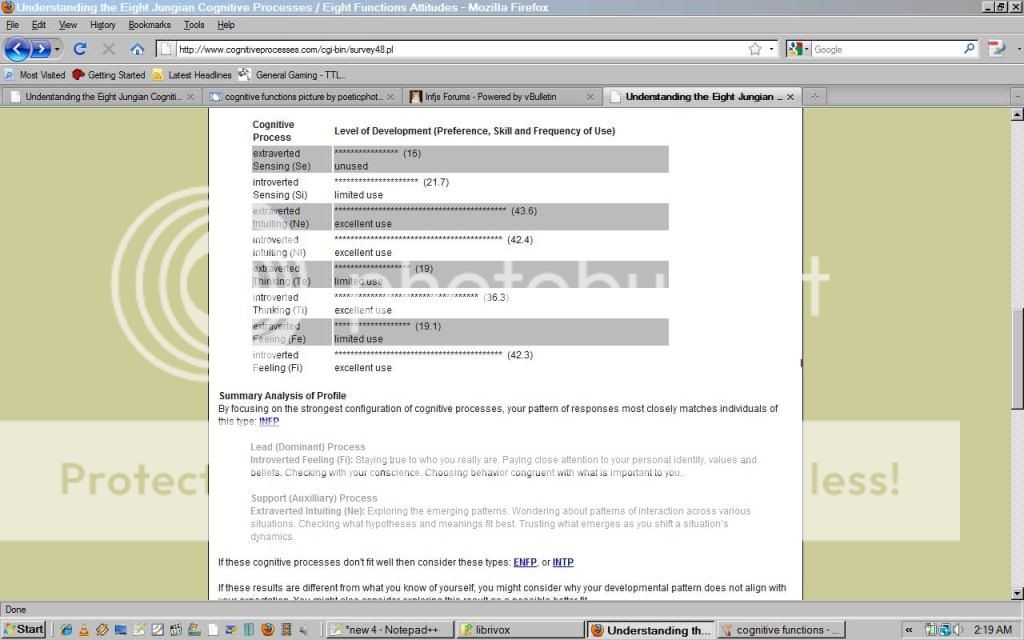1. Ni is actually one of my dominant functions (don't ask...that's for another thread)
For me, a major reason why I am confused about Ni is that I never really think of my Ni as being a part of myself. Let me explain. Since I grew up in a religious household, I unconsciously attribute a divine origin to many of my Ni insights. It is something that comes from outside of me, so I don't feel like I have a right to really own it as a personality trait.
Since there are many Ni users here, could you share your thoughts on this?
---------------------------------------------------------------
2. Sometimes, it seems as if the lines between Ni and Fi are blurred. For
example, on the cognitive functions test, there is a section under Fi called "gut reactions"
-. "feel strongly that something is good or bad"
-. "detect if someone's behavior is authentic or phony"
Yet in the thread on this forum called "INFJ's and gut feelings", the way in which they talked about Ni made it sound suspiciously similar to this kind of "gut reaction." Yet it is listed under Fi here.
For me, a major reason why I am confused about Ni is that I never really think of my Ni as being a part of myself. Let me explain. Since I grew up in a religious household, I unconsciously attribute a divine origin to many of my Ni insights. It is something that comes from outside of me, so I don't feel like I have a right to really own it as a personality trait.
Since there are many Ni users here, could you share your thoughts on this?
---------------------------------------------------------------
2. Sometimes, it seems as if the lines between Ni and Fi are blurred. For
example, on the cognitive functions test, there is a section under Fi called "gut reactions"
-. "feel strongly that something is good or bad"
-. "detect if someone's behavior is authentic or phony"
Yet in the thread on this forum called "INFJ's and gut feelings", the way in which they talked about Ni made it sound suspiciously similar to this kind of "gut reaction." Yet it is listed under Fi here.



